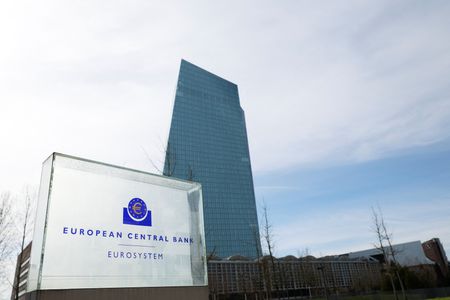 1
1 1
1
By Balazs Koranyi
SINTRA, Portugal (Reuters) – Professional forecasters globally who have been blindsided by the recent surge in inflation acknowledged on Wednesday the need for humility to deal with economic realities still only poorly understood by their discipline.
Central bankers worldwide have faced criticism in public and parliaments over the past two years for labelling inflation “transitory” and then failing to anticipate how stubborn those price pressures would be as forecasting models failed in the face of shocks ranging from COVID-19 to the Ukraine war.
While those shocks finally prompted policymakers to embark on the current round of unprecedented interest rate hikes, some observers argue that the gravity of the situation called for even earlier and more aggressive moves.
“Forecasting is a humbling task,” Alfred Kammer, European Director of the International Monetary Fund told a panel on what lessons had arisen from the experience at the European Central Bank’s annual get-together in the Portuguese resort of Sintra.
“The elephant in the room, with the repeated underestimation of inflation over the past one and a half years, points to the need of being nimble,” he said of the need for forecasters to be more flexible with their approaches.
A key challenge facing the profession is that widely-held economic truths have not functioned as usual, the panel heard.
In particular, the vital inverse relationship between unemployment and growth was weakened because of pandemic-era job retention schemes and a growing preference to work fewer hours. The link between savings and spending was twisted during lockdowns that limited opportunities to go out and shop.
Energy price fluctuations also proved hard to deal with, not least because many forecasters used oil prices as a proxy for energy prices in general, a rule-of-thumb which didn’t take fully into account the wild swings in gas prices following Russia’s invasion of Ukraine last year.
Other factors came into play. Simultaneous policy tightening across the world muted the exchange rate boosts which usually help ease inflation by lowering the price of imports – meaning central banks effectively got a smaller bang for their buck.
While forecasts can be relatively accurate over the short term they quickly lose accuracy beyond a year, Kammer said.
“Despite learning lots, obviously, we have to be humble,” said Clare Lombardelli, chief economist of the Paris-based Organisation for Economic Cooperation and Development (OECD).
“We have, like everyone else has, consistently underestimated how persistent inflation would be.”
However, policymakers dismissed the idea of tearing up their models and instead made the case for perfecting them – whether through the use of big data, more surveys, closer contact with businesses, or adjusting some of their base assumptions on interest rates or fiscal policy.
“The role of central banks and central bank forecasts is not necessarily to produce the best forecasts,” Bank of England chief economist Huw Pill said. “The role is to support the best monetary policy decision, which brings inflation back to target.”
(Reporting by Balazs Koranyi; editing by Mark John and Emelia Sithole-Matarise)